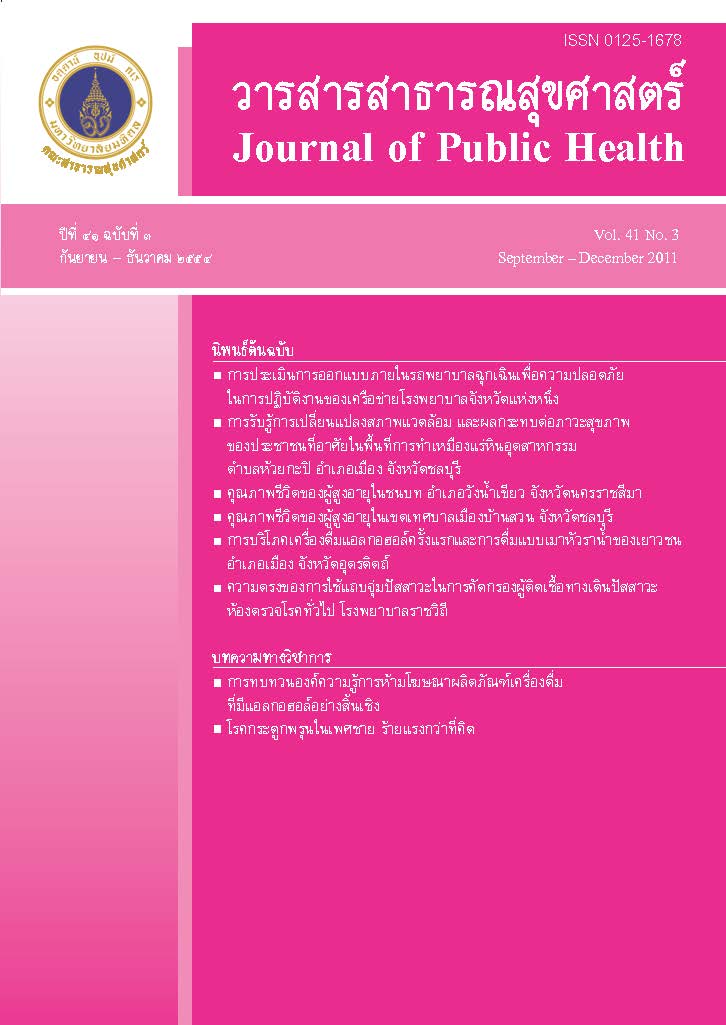ผลของโปรแกรมส่งเสรมความสามารถในการเลี้ยงลูกด้วยนมแม่ของมารดาครรภ์แรก
Keywords:
Self-efficacy intervention, Self-efficacy beliefs, Expected outcome, Breastfeeding, First-time MothersAbstract
ABSTRACT
The purpose of this quasi-experimental study was to examine the effects of a breastfeedingself-efficacy intervention in first-time mothers. The sample consisted of thirty-five first-time motherswho were at thirty-six weeks into their pregnancy, and who had their delivery at DamnoensaduakHospital. The breastfeeding self-efficacy intervention was conducted three times over a period offourteen weeks. Activities included breastfeeding motivation, breastfeeding skill building, familysocial support, telephone counseling, and home visits. Data were collected through self-administeredquestionnaires on three different occasions: before intervention, after delivery but beforedischarge, and at the eighth week postpartum. The research tools included self-efficacy beliefs inbreastfeeding scale, expected breastfeeding outcome scale, and breastfeeding practice scale. Datawere analyzed using frequency, percentage, mean, standard deviation, repeated measures one-wayANOVA, Bonferroni, and paired t-test. The results revealed that after intervention at the 8th weekpostpartum, the first-time mothers showed significantly higher levels of self-efficacy beliefs inbreastfeeding and expected breastfeeding outcomes than before the intervention at p-value < 0.001and had a breastfeeding practice score higher than before discharge from hospital, at p-value < 0.001.and showed 6 months exclusive breastfeeding rate was 77.1%.
The findings suggest that a breastfeeding self-efficacy intervention in first-time motherscan incresase the mother’s confidence, her perception of breastfeeding benefits, and can helpthem to improve breastfeeding performance.
Key words: Self-efficacy intervention; Self-efficacy beliefs; Expected outcome; Breastfeeding; First-time Mothers
Downloads
Issue
Section
License
Creative Commons License CC-BY-ND


